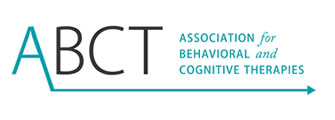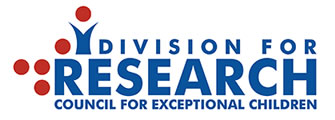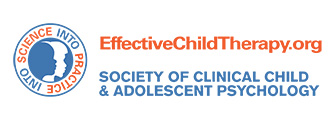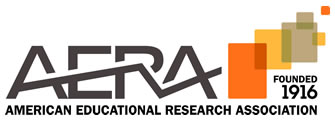
“When she told me she loved me, I was done!” said a dad who participated in a study of low-income fathers and their children when asked about the rewards and costs of being a dad. He was candid about both joys and costs. The costs as a father can include lack of support from programs and the community; difficulty staying connected with his friends; and feeling lonely in the father parenting role. This father reported he often felt his child’s maternal family didn’t see that he loved his daughter, rather, they mostly cared about the money he was bringing home.
While fathers’ financial contribution is important, this is not the only need for healthy child development. Around the turn of the 21st Century, social trends changed from the traditional roles of father as breadwinners and mothers as primary caretakers. Increased participation of women in the labor force began to a shift in both mother and father roles in the family. More mothers are now working outside the home and more fathers are now involved in the daily care of their children. Fathers are seen changing a diaper, feeding, entertaining, and engaging their children in stimulating activities such as reading and helping with homework, playing, and daily routines more than ever before. This integration of roles creates a more holistic view of parenting. This enhanced role fathers have in their children’s lives reinforces the importance of nurturing father-child relationships.
Positive nurturing and reciprocal relationships are at the center of healthy development of children. Parents who are sensitive and positively engaged with their children have children who learn and develop the cognitive skills they need. These parents provide loving care and support during times of distress and encourage confidence and independence at other times. Sensitive parents engage children in a variety of fun and engaging learning activities, such as reading, playing, and doing puzzles together, creating an emotionally supportive climate for young children. During these dynamic and reciprocal verbal and nonverbal interactions, children explore and learn by trial and error in developmentally appropriate ways. The children are rewarded when they succeed and encouraged to keep trying when they don’t. In these emotionally supportive moments, children learn to regulate their emotions and behaviors and to initiate social interactions with others. Independent of other family characteristics and support, a sensitive caregiving environment characterized by positive and reciprocal relationships with fathers and mothers is likely to provide an optimal emotional context for children’s early brain maturation and development.
Father-Child Bonding
An important part of father-child relationships is the extent to which fathers and their children form close emotional attachments with each other. Similar to mothers, this process begins during the prenatal and infancy periods. When fathers are attuned to the growing baby and are involved by supporting mothers or by listening to the heart beat or seeing an ultrasound, they begin to develop an identity and a cognition that they are going to be dads. This is an important and powerful moment for fathers. This paternal awareness can determine future involvement in their child’s life, particularly if the relationship with the child’s mother dissolves.
Sensitivity, which is the extent to which fathers are warm, responsive, and aware of children’s emotional and physical needs, can strengthen father-child attachment bond. Fathers who continue to be involved and engaged in their child’s life have a better chance of developing a long-lasting loving relationship. This relationship can support and emotionally nurture both children and fathers over time.
Fathers Matter for Young Children
Fathers contribute to their young children’s lives in many ways, influencing children’s social, cognitive, and language development that are unique compared with mothers. For example, fathers are more likely to engage in physical play that involves wrestling, tumbling, and chasing one another in a playful context. This type of ‘rough and tumble play” encourages children to take risks and set limits. These father-child interactions have been shown to help both boys’ and girls’ abilities to regulate their own behavior and emotions, particularly aggressive behaviors. Alternately, mothers who also engage in rough and tumble play but prefer to focus on more caregiving and nurturance behaviors, which are also important for developing a secure relationship. Children who grow up with involved mothers and fathers develop the skills they need to succeed in school and beyond.
Fathers also help with their children’s language, including vocabulary development and production of words. Fathers tend to ask more questions, specifically wh-questions (i.e., who, what, when, where, why, how) to their children while reading or talking. These types of questions encourage more back and forth talk with their children. These activities have been linked to more advanced language skills in their children. In contrast to fathers’ more direct language, mothers tend to use more “motherese” or slow, higher pitched exaggerated speech to their babies, which assist in developing infants’ language processing. These different types of verbal interactions reinforce the importance of both mothers and fathers roles in child development in communication.
Father-child relationship can be greatly influential in a child’s life and healthy development. Despite the increased involvement in all aspects of children’s lives, fathers are often left out of programs and policies targeted at parents and children. Fathers, like mothers, love their children and want the best for them. Sometimes, this is difficult to do for many fathers who do not have the means, the support, or the know-how. We need to help and encourage fathers, as well as mothers, to become the loving and supportive parents they want to be.
Proper citation link for this blog post:Cabrera, N. & Hennigar, A. (December 4, 2018). Beyond the Breadwinner role: Promoting Positive Father-Child Relationships in Early Childhood. Retrieved from https://infoaboutkids.org/blog/beyond-the-breadwinner-role-promoting-positive-father-child-relationships-in-early-childhood.
















